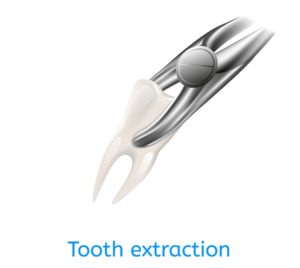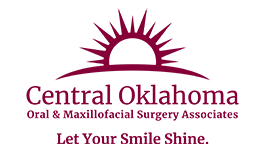16 Sep What To Do After A Tooth Extraction
 A tooth extraction that involves a surgical procedure, such as removal of the wisdom teeth, can result in complications if the patient does not take proper care of the extraction site afterward.
A tooth extraction that involves a surgical procedure, such as removal of the wisdom teeth, can result in complications if the patient does not take proper care of the extraction site afterward.
Your oral surgeon will send you home with thorough instructions about what to do after your tooth extraction to reduce your risk of issues. It is important to follow these instructions closely so that you heal as expected.
Possible Post-Extraction Complications
Two of the most concerning possible complications after surgical tooth extraction, such as wisdom teeth removal, are dry sockets and infection.
- Dry sockets: After a tooth is extracted, a blood clot will form in the empty socket to protect the tender nerve endings that are exposed after the extraction. Dry sockets occur when this clot either fails to form or is dislodged prematurely.
- Infection: If the patient fails to keep the extraction site clean enough, oral bacteria can invade the area and cause a painful and potentially dangerous infection.
Fortunately, these and other extraction-associated risks are relatively rare and can be managed adequately when the patient adheres to the post-extraction regimen prescribed by the oral surgeon. You should also be aware of the signs of problems, such as persistent bleeding or significant discomfort, so that you can follow up with our office for further evaluation, if needed.
How To Take Care of The Extraction Site
Patients can take a number of steps on their own to reduce the risk of these outcomes.
- Preventing dry sockets: Avoid engaging in activity that could interfere with the formation or the adherence of the blood clot in the empty socket. This includes avoiding drinking straws for several days after your extraction, as well as abstaining from tobacco use.
- Preventing infection: Clean the extraction site as directed by your surgeon. You will need to adjust your technique around the extraction site to avoid dislodging any sutures.
- Minimizing discomfort: Patients may experience mild to moderate discomfort after having their wisdom teeth removed, and this symptom often can be managed with over-the-counter pain medications. Your surgeon can prescribe a stronger painkiller if needed.
If you are anticipating a surgical extraction, we encourage you to check in with your surgeon or another knowledgeable member of our staff to make sure that you thoroughly understand everything that is necessary to care for your smile after the extraction. For more information, contact our team at Central Oklahoma Oral & Maxillofacial Surgery Associates.
